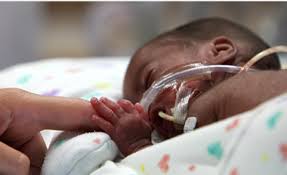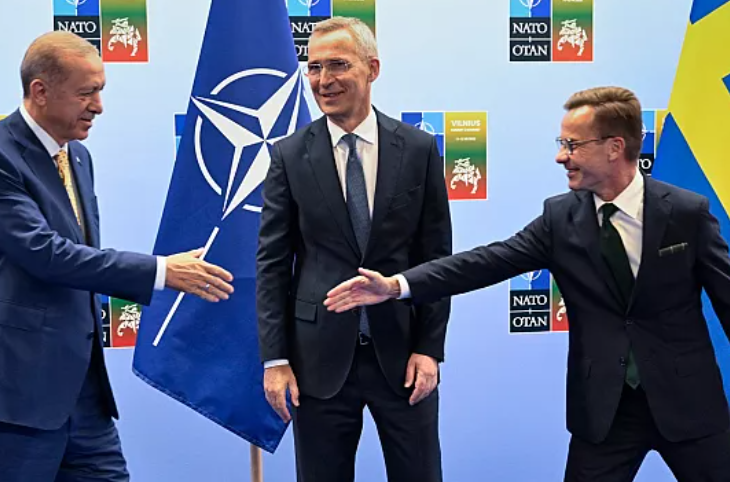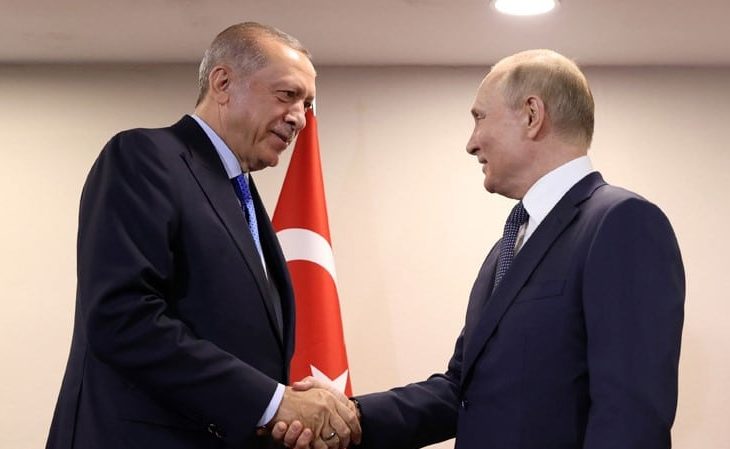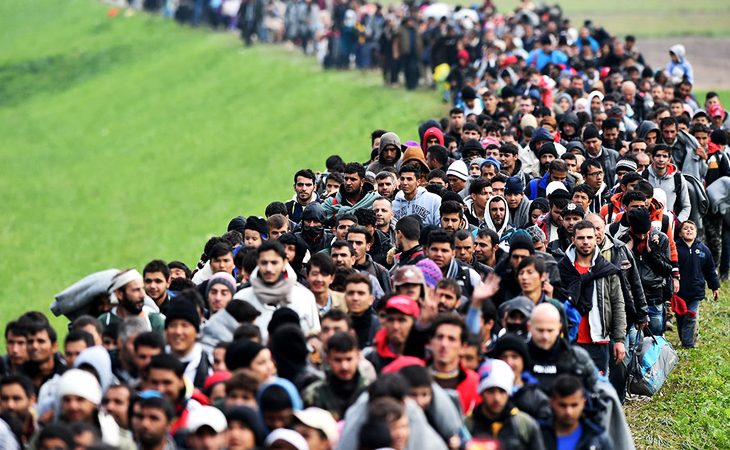The ongoing investigation into the neonatal operation has revealed disturbing truths about the inadequacies and ethical failures within Turkey’s healthcare system. This scandal not only underscores the urgent need for systemic reform but also calls into question the practices of private healthcare providers.
A System in Distress
The details emerging from the investigation highlight a healthcare system that has strayed from its primary mission of patient care. Instead of prioritizing the well-being of newborns, certain private hospitals engaged in exploitative practices that prioritized profit over ethics. This troubling trend reveals a system where financial incentives overshadow the moral obligation to provide safe and effective healthcare.
Lack of Transparency and Accountability
The investigation's initial phases were marked by a concerning lack of transparency, with key officials—including former Health Minister Fahrettin Koca—excluded from critical discussions. The decision to conduct the investigation in secret, limiting knowledge to a select group, raises serious questions about accountability within the Ministry of Health.
Despite receiving warnings regarding the substandard treatment of newborns, the response from authorities was slow and insufficient. The delayed action allowed harmful practices to continue, indicating a troubling negligence within the health oversight framework.
The Role of Private Healthcare Institutions
The involvement of private hospitals in this scandal exposes a larger issue with the privatization of healthcare in Turkey. Intended to enhance patient care, these facilities instead prioritized financial gains, leading to devastating consequences for vulnerable infants. The regulatory mechanisms that were supposed to ensure quality care have proven inadequate, failing to hold these institutions accountable for their actions.
A Call for Systemic Reform
The Yenidoğan Gang scandal serves as a crucial wake-up call for healthcare policymakers in Turkey. It is imperative that reforms are implemented to restore patient safety and ethical standards within the healthcare system. This includes strengthening regulatory oversight, ensuring accountability among healthcare providers, and fostering an environment that prioritizes quality care over profit.
In conclusion, the details surrounding the neonatal operation expose critical flaws in Turkey's healthcare system. It is essential for policymakers to act decisively to address these shortcomings and rebuild trust in a system designed to protect and care for its most vulnerable patients.
--------------------------------------------------------
The Yenidoğan (Neonatal) Gang operation, which shocked Turkey, first came to public attention after a prosecutor in Büyükçekmece, Istanbul, resisted threats demanding the release of the detainees. The incident gained further visibility when a video of the event was leaked to the media. Contrary to the perception created by mainstream media that the arrests only followed the video's release, the operation had been in progress for 1.5 years, dating back to March 2023. At that time, Kemal Memişoğlu was Istanbul's Provincial Health Director, Fahrettin Koca was Minister of Health, Süleyman Soylu was Minister of Interior, and Ali Yerlikaya—who would later be appointed by President Tayyip Erdoğan—was serving as Governor of Istanbul.
According to information from official sources wishing to remain anonymous, the early stages and developments of the Neonatal Gang operation were intentionally kept secret from then-Health Minister Fahrettin Koca. The details were confined to a small circle of four individuals to prevent any leaks until the case was officially handed over to the prosecutor's office. Furthermore, it was not until September 11 that the Ministry was formally notified of the Neonatal Gang's activities, which had led to infant deaths—a date later than initially assumed.
The full details of this operation and its implications will be shared shortly, but it's important to note that the secrecy around the operation's early stages played a critical role in its handling.
Bloody Plan to Defraud the State
The indictment against the Yenidoğan (Neonatal) Gang was submitted to the Bakırköy 22nd High Criminal Court on October 16, 2024, by the Bakırköy Chief Public Prosecutor's Office. However, months before this, operations had already been carried out targeting suspect private hospitals, leading to the detention of 47 individuals, 22 of whom were later arrested.
At the heart of the investigation was Yavuz Engin, the public prosecutor from Büyükçekmece, who faced threats from Aylin Arslantatar, the lawyer representing gang members already in custody for months, and Mustafa Kemal Zengin, a notorious mafia figure claiming ties to the "deep state." The gang's scheme was as sinister as it was complex. Exploiting a loophole in the state's coverage of intensive care costs, they formed a secret organization to defraud the Social Security Institution (SGK) via the Ministry of Health. The gang, which included two doctors and an employee from the 112 Emergency Service, would transport newborns—many already in fragile health—to intensive care units at private hospitals they had partnered with. These babies were kept alive just long enough to qualify for a daily payout of 8,000 liras per child from SGK.
The Role of Health Minister Kemal Memişoğlu and the Private Hospital System
The focus now turns to Health Minister Kemal Memişoğlu, whose involvement in the early stages of the operation is under scrutiny. The CHP and other opposition parties accuse Memişoğlu of negligence, questioning whether he turned a blind eye to the gang’s activities during his tenure as Istanbul's Provincial Health Director. They have called for his resignation.
Memişoğlu, however, claims to have played a key role in the operation. In an October 18 statement, he credited a tip-off to the Presidential Communication Center (CİMER) as the trigger that brought down the gang. Two days later, on October 20, Memişoğlu posted on his "X" account, announcing that structural reforms were needed within the health system.
His call for reform seems to target the private hospital-driven system that has underpinned Turkey's healthcare since the AK Party came to power. The indictment led to the closure of several private hospitals, including Private Avcılar Hospital, owned by former Health Minister Mehmet Müezzinoğlu. Memişoğlu’s second statement came after a key meeting with President Erdoğan and Justice Minister Yılmaz Tunç on October 19.
The question now being raised is: did it take the deaths of innocent infants for the AK Party to finally confront the failings of Turkey’s crumbling private hospital system? The scandal has highlighted deep flaws in the current healthcare model, leading many to wonder if the government will now be forced to make meaningful changes.
Healthcare Workers Shouldn’t Be the Target
In his statements on October 18 and 20, Health Minister Kemal Memişoğlu emphasized the need to protect healthcare workers from unjust backlash amid the Neonatal Gang scandal. Two key figures in the gang, Fırat Sarı and İlker Gönen, were nurses, caregivers, and 112 emergency responders. This led to misplaced anger from the public, targeting healthcare workers as a whole. Attacks on doctors and medical professionals are already a grave issue in Turkey, with many facing violence despite their tireless work, especially during the COVID-19 pandemic, when they risked their lives to serve the public.
To prevent further hostility, Memişoğlu suggested that the Ministry of Health collaborate with the Turkish Medical Association to root out bad actors while protecting the integrity of healthcare professionals. However, before this can happen, accountability must be brought for the Neonatal Gang scandal itself. Memişoğlu, along with Vedat Işıkhan, the head of the Ministry of Labor (which oversees the SGK, the target of the gang’s fraudulent scheme), should be held to account.
It’s hoped that justice will be served through the judicial process, not only punishing those who committed these heinous crimes out of greed but also addressing the systemic issues that allowed it to happen. Now, let’s examine the detailed anatomy of the Yenidoğan Gang operation, based on official sources.
The First Tip-off and Early Steps
- March 27, 2023: A tip-off was forwarded by the Presidential Communication Center (CİMER) to the Ministry of Health. Though the exact contents weren’t disclosed, the report suggested that certain private hospitals in Istanbul were profiting from newborns referred to them by the 112 Emergency Service, without providing proper care.
- April 3, 2023: The Ministry forwarded the report electronically to the Istanbul Provincial Directorate. At that time, Fahrettin Koca was the Minister of Health, and Kemal Memişoğlu, who would later be appointed Minister by President Erdoğan in July 2024, was the Provincial Health Director.
- Same month: In response, the Istanbul Provincial Directorate dispatched "extraordinary inspection" teams to the reported private hospitals. Early feedback from inspectors indicated that there was indeed a "problem," though they lacked the tools to detect the full scope of the misconduct.
- Next steps: Recognizing the limitations of the inspectors, Director Memişoğlu sought assistance from the Financial Branch of the Istanbul Police, turning to a superintendent they had worked with before during operations involving the theft of materials from earthquake disaster zones.
Memişoğlu’s actions in these early stages indicate that while he was involved in the investigation, his leadership during this period is under question. As this scandal unfolds, his role, as well as that of the broader healthcare system, will likely face further scrutiny.
The Investigation Is Kept Secret from Minister Koca
- Due to suspicions of organized crime within the health sector, the decision was made to conduct the investigation in secret. This secrecy was maintained to avoid potential leaks. Only a small team, including then-Provincial Health Director Kemal Memişoğlu, a superintendent from the Istanbul Police Financial Crimes Unit, a legal officer, and Serdal Zelyut (who unfortunately passed away from cancer during the investigation), were privy to the operation. Even Health Minister Fahrettin Koca was not informed at this stage.
- As the investigation unfolded, it became clear that technical surveillance would be required due to suspicions of an organized criminal operation. The investigation was therefore formally handed over to the prosecutor's office, with encrypted communications used to maintain confidentiality. On May 5, 2023, the Bakırköy Public Prosecutor's Office and the Financial Crimes Unit of the Istanbul Police officially took control of the investigation, limiting the Provincial Health Directorate's role to providing information when needed.
- By September 2023, while the prosecutor's office and police continued their technical surveillance, the Provincial Health Directorate intensified its inspections. However, these inspections yielded little success, with suspicions that information had been leaked to the gang by some of the inspection teams.
Secret Operations and Raids
- On November 24, 2023, the Büyükçekmece Public Prosecutor’s Office sent a "Confidential" letter to the Ministry of Health, warning them of an investigation into a similar matter.
- On December 5, the Ministry of Health's Inspection Board assigned inspectors to investigate the allegations from the Büyükçekmece prosecutor's office. Two days later, the inspectors requested further information from the prosecutor, but due to the sensitive nature of the investigation, only general allegations were shared, not detailed evidence.
- On February 9, 2024, the inspectors submitted a preliminary report, concluding there was "strong suspicion," particularly focusing on the operations of the 112 Emergency Service call center.
- On April 22, the prosecutor's office once again rejected the health inspectors' request for detailed information, citing confidentiality. By this time, the prosecutor’s office and police were preparing for a major operation.
- On April 26-27, 2024, the police carried out raids on the hospitals involved, detaining 47 individuals. Among them were key figures, including Dr. Fırat Sarı, Dr. İlker Gönen (who would later be identified as the gang’s leader), and Gıyasettin Mert Özdemir, a 112 emergency driver. Out of those detained, 22 were eventually arrested, marking a significant breakthrough in the investigation.
This clandestine operation revealed the dark workings of an organized network within the healthcare system, with the goal of exploiting the state's resources for profit at the expense of vulnerable newborns. The fallout from this scandal continues to raise questions about oversight and accountability in the healthcare sector.
The Unyielding Prosecutor Against Threats
- On May 9, the prosecutor's office lifted the confidentiality order, sending certain documents, including reports from the Financial Crimes Investigation Board (MASAK) under the Ministry of Treasury and Finance, to the Ministry of Health.
- On July 2, 2024, President Erdoğan accepted the resignation of Health Minister Koca and appointed Memişoğlu, who had been involved in the newborn investigation since its inception, as his replacement.
- Meanwhile, in August, the attorney for the detained defendants, Aylin Arslantatar, approached Bakırköy Prosecutor Yavuz Engin, threatening that if some suspects were not released, her and her family’s lives would be in danger. During the meeting on August 30, when she came accompanied by Mustafa Kemal Zengin and escalated her threats, the police had already equipped Prosecutor Engin's office with recording devices. Subsequently, Zengin, a character with mafia-like traits who often portrayed himself as influential by taking photos with politicians and claiming false connections to the MIT (National Intelligence Organization), was detained and arrested. Prosecutor Engin did not cave to the threats and informed the relevant authorities.
Reporting Infant Deaths to the Ministry
- On September 3, the Bakırköy Public Prosecutor's Office began sharing information and documents with the Health Ministry's Inspection Board.
- On September 11, 2024, all documents and disks were sent to the Ministry of Health. This date is significant as it marked the first time the ministry, which had transferred the initiative of the investigation to the Bakırköy Prosecutor's Office and the Financial Crimes Unit on May 5, 2023, officially learned that the investigation involved not just neglect and inadequate care of newborns but also their deaths. According to a high-level source, "we did not know about the infant deaths until that date."
- On the same day, the ministry requested "medical consultations" from two professors and an associate professor at Zeynep Kâmil Hospital. Expert reports dated September 16 and 25 indicated several issues related to infant deaths.
- On September 28, the Ministry's Inspection Board submitted a recommendation to close 10 private hospitals.
The Indictment: Hospitals Are Closed
- On October 16, the Bakırköy Chief Public Prosecutor's Office submitted a 1,399-page indictment to the Bakırköy 22nd High Criminal Court. The indictment requested that suspects Fırat Sarı and İlker Gönen be sentenced to a total of 177 years and 6 months to 582 years and 9 months in prison for charges of "manslaughter by negligence," "qualified fraud," "forming an organization for the purpose of committing a crime," and "forgery of official documents." As for 112 emergency driver Özdemir, a sentence of 180 years to 589 years and 9 months was sought for charges of "manslaughter by negligence," "illegal acquisition of personal data," "fraud to the detriment of public institutions and organizations," "forming an organization for the purpose of committing a crime," and "forgery of official documents."
- On October 18, the Ministry of Health closed 10 hospitals—1 in Tekirdağ and 9 in Istanbul—beginning the transfer of patients to other facilities. Among the closed hospitals was "Özel Avcılar Hospital," which is co-owned by former Health Minister Mehmet Müezzinoğlu, who had been in office before Koca and also owned a chain of private hospitals.
 NICU
NICU





